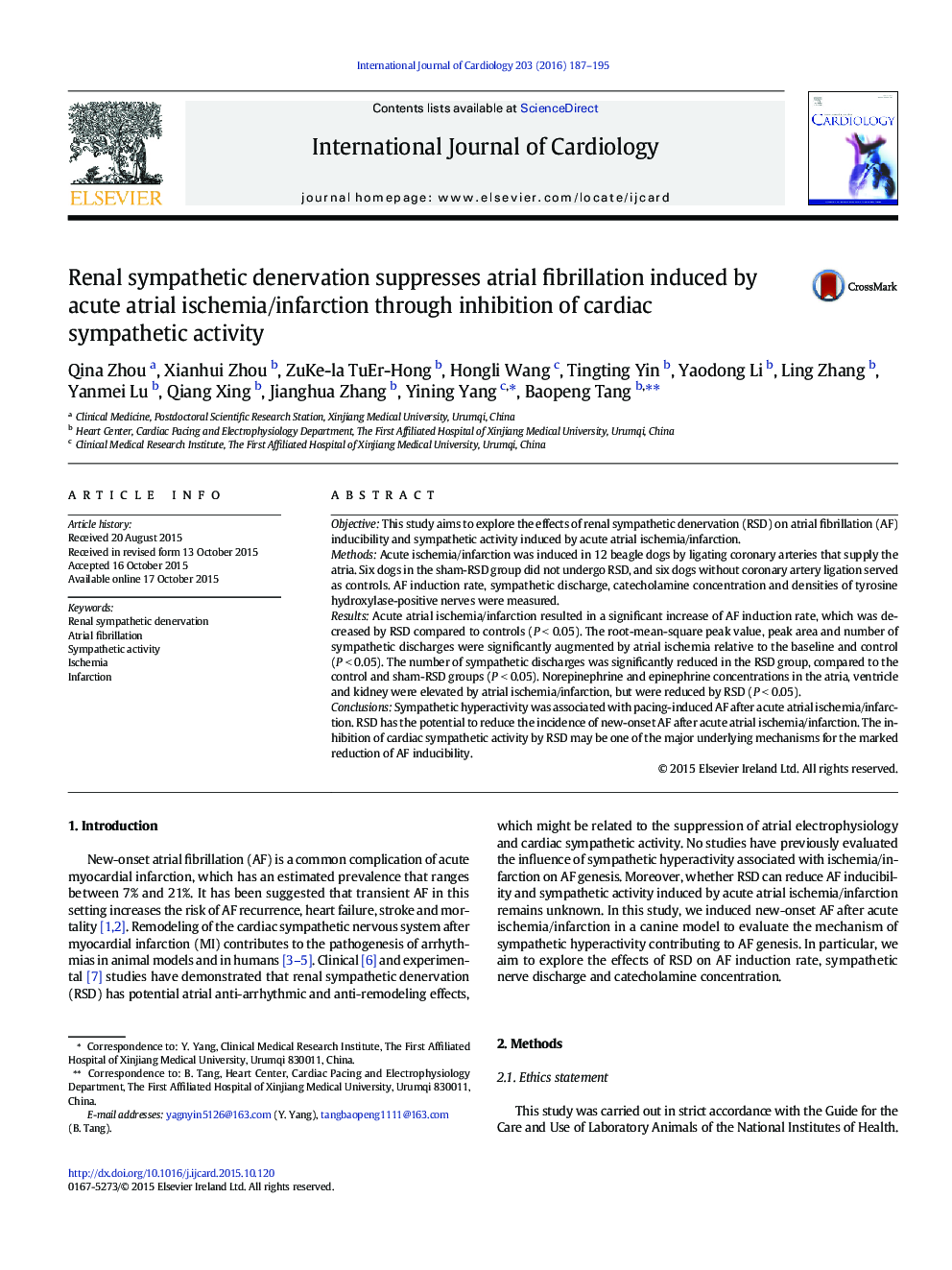| Article ID | Journal | Published Year | Pages | File Type |
|---|---|---|---|---|
| 5965567 | International Journal of Cardiology | 2016 | 9 Pages |
ObjectiveThis study aims to explore the effects of renal sympathetic denervation (RSD) on atrial fibrillation (AF) inducibility and sympathetic activity induced by acute atrial ischemia/infarction.MethodsAcute ischemia/infarction was induced in 12 beagle dogs by ligating coronary arteries that supply the atria. Six dogs in the sham-RSD group did not undergo RSD, and six dogs without coronary artery ligation served as controls. AF induction rate, sympathetic discharge, catecholamine concentration and densities of tyrosine hydroxylase-positive nerves were measured.ResultsAcute atrial ischemia/infarction resulted in a significant increase of AF induction rate, which was decreased by RSD compared to controls (PÂ <Â 0.05). The root-mean-square peak value, peak area and number of sympathetic discharges were significantly augmented by atrial ischemia relative to the baseline and control (PÂ <Â 0.05). The number of sympathetic discharges was significantly reduced in the RSD group, compared to the control and sham-RSD groups (PÂ <Â 0.05). Norepinephrine and epinephrine concentrations in the atria, ventricle and kidney were elevated by atrial ischemia/infarction, but were reduced by RSD (PÂ <Â 0.05).ConclusionsSympathetic hyperactivity was associated with pacing-induced AF after acute atrial ischemia/infarction. RSD has the potential to reduce the incidence of new-onset AF after acute atrial ischemia/infarction. The inhibition of cardiac sympathetic activity by RSD may be one of the major underlying mechanisms for the marked reduction of AF inducibility.
